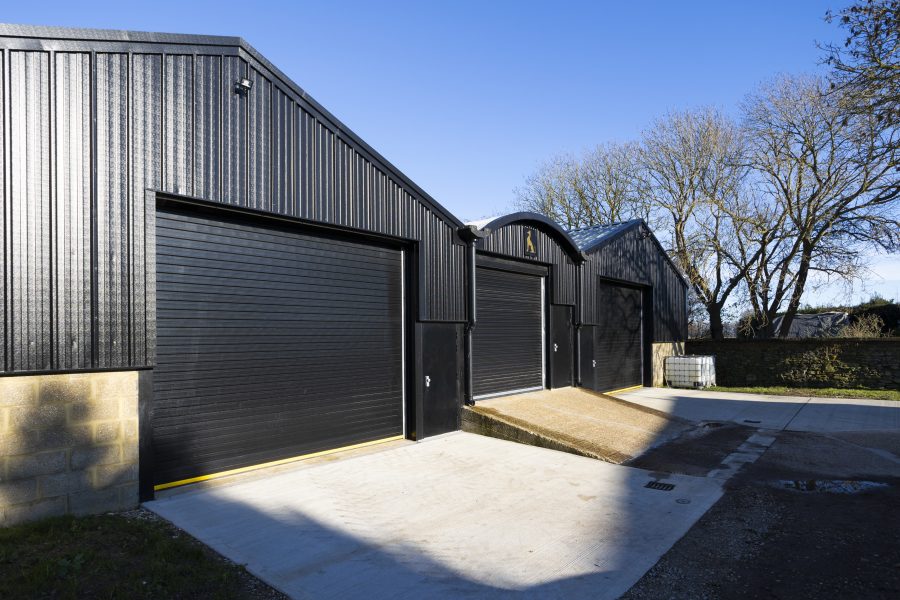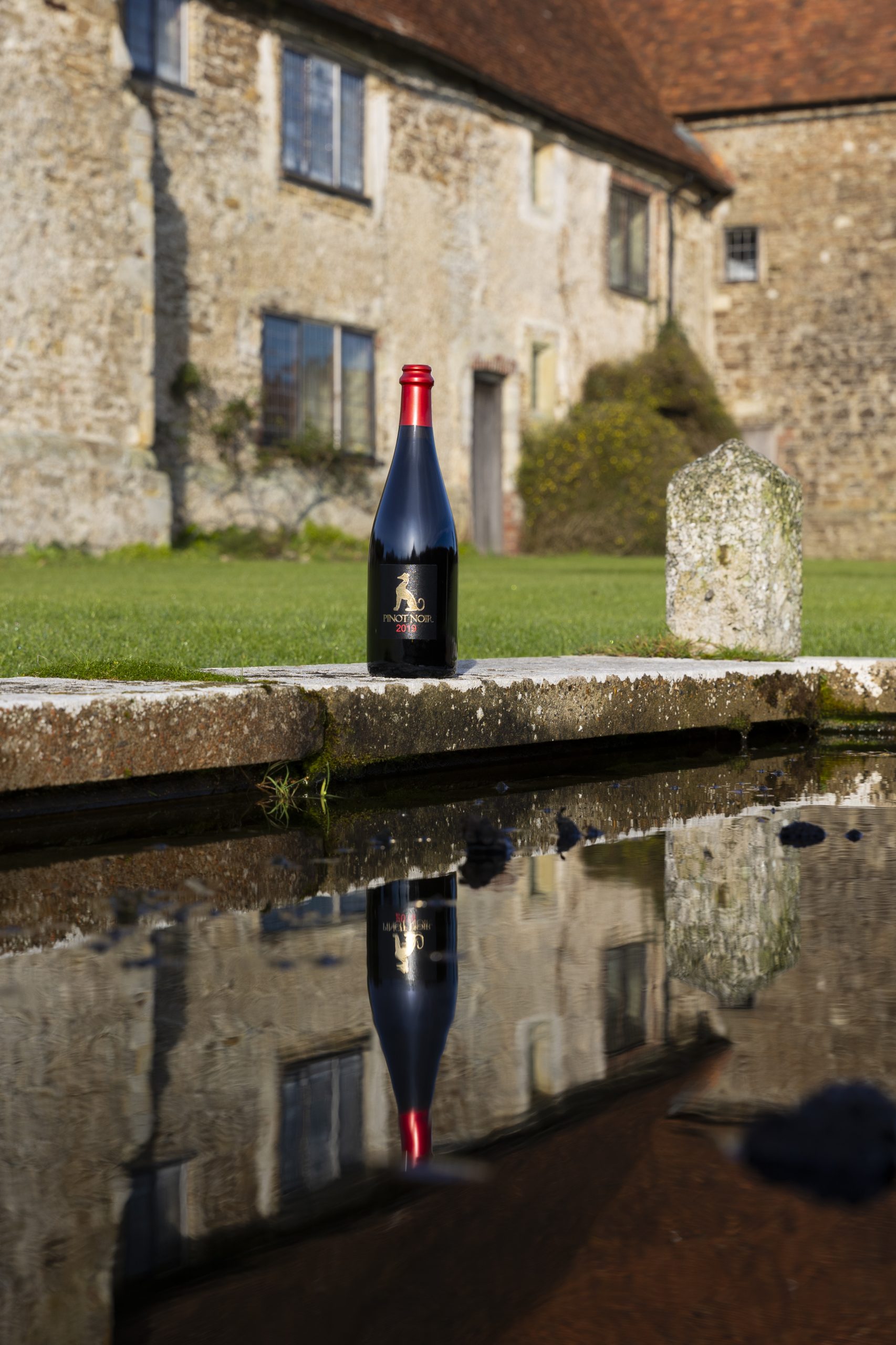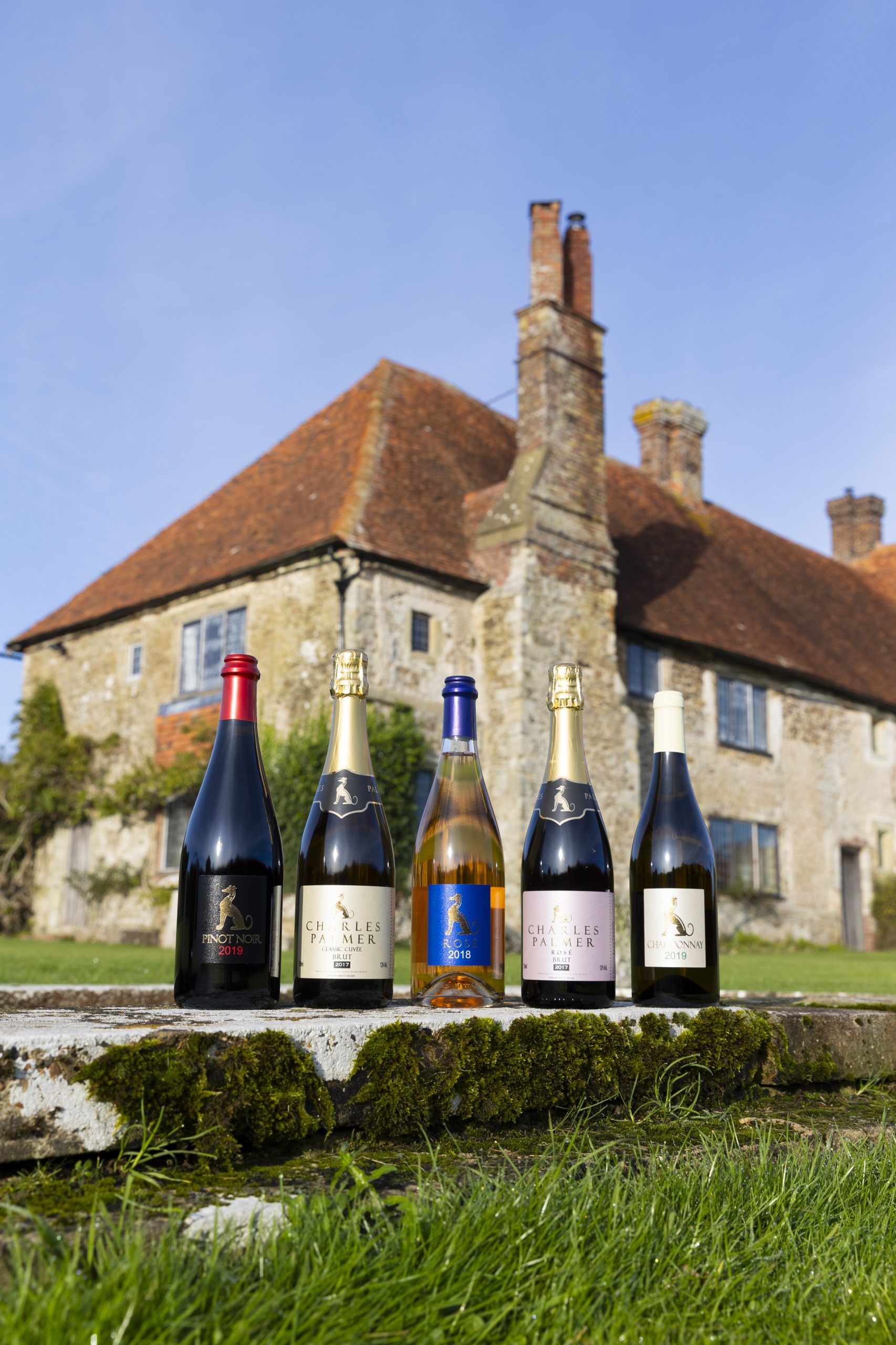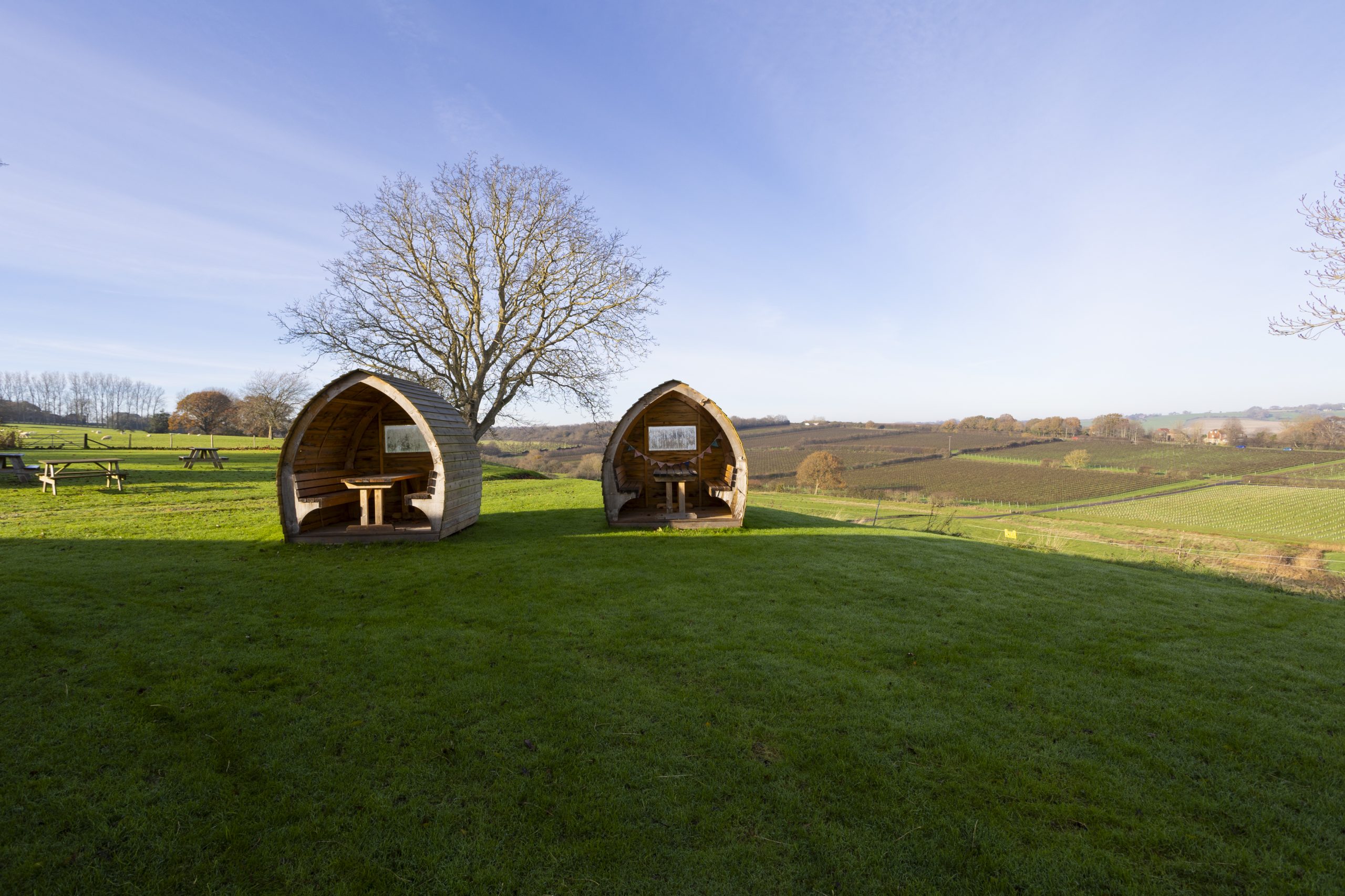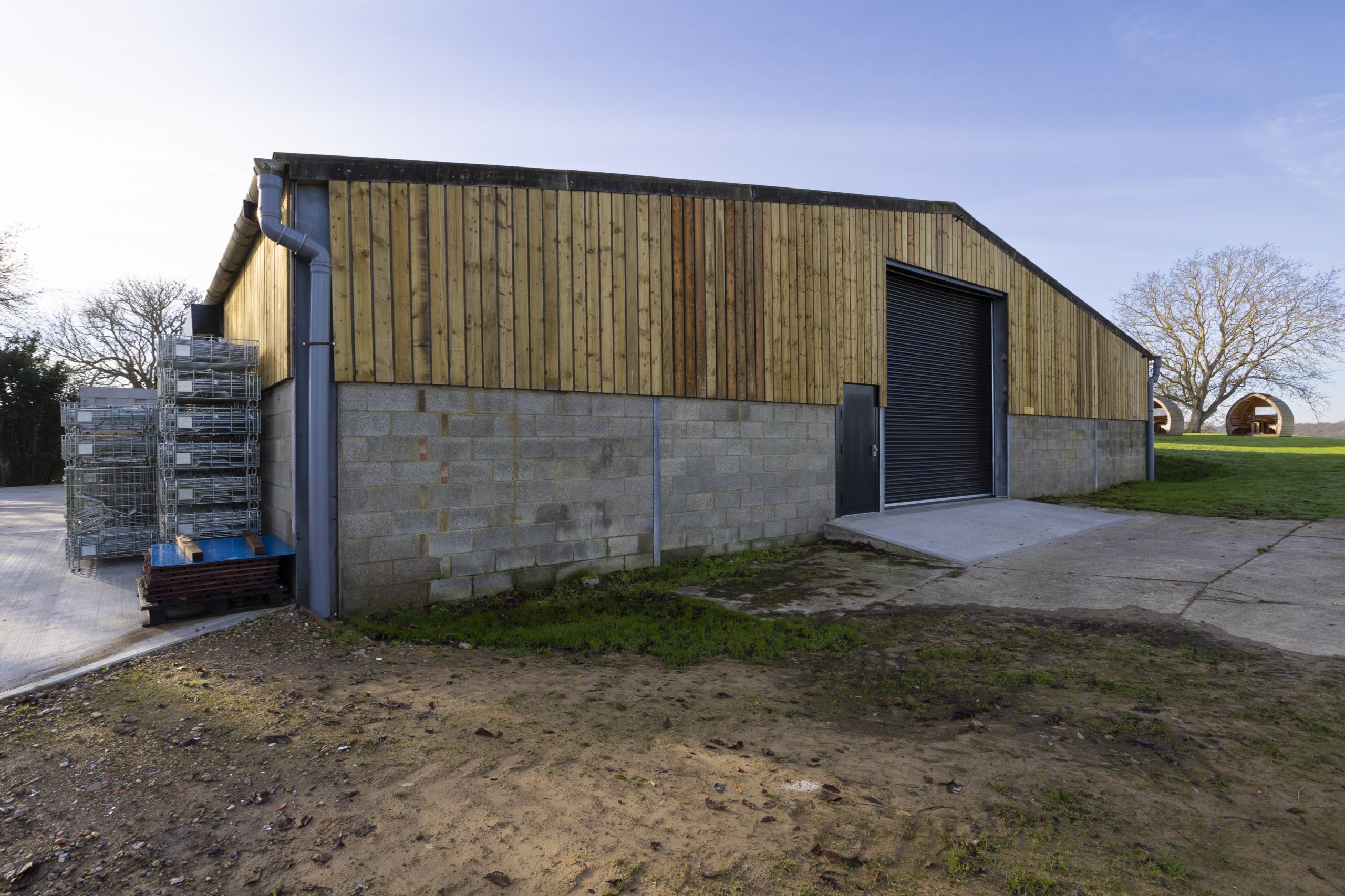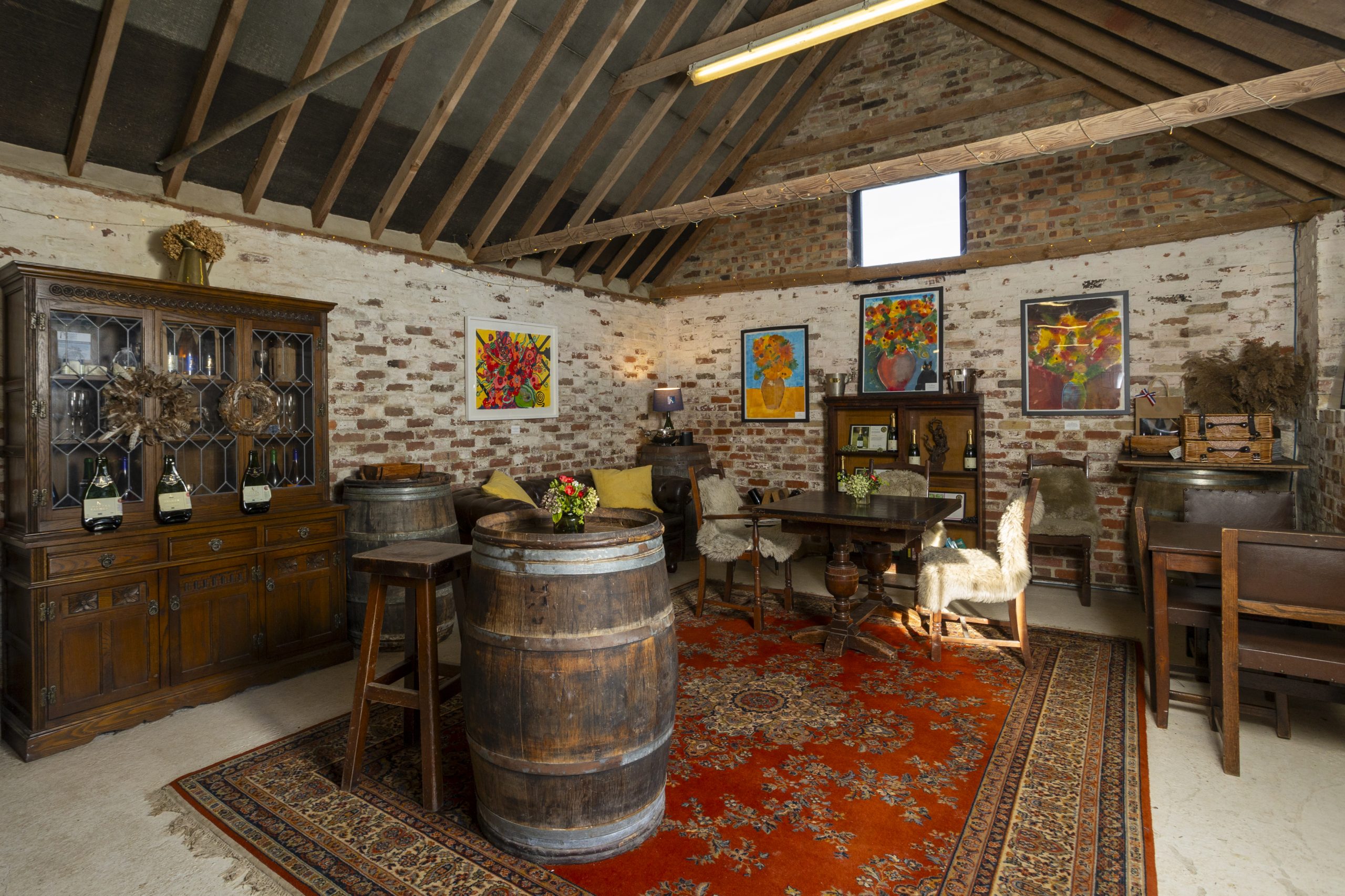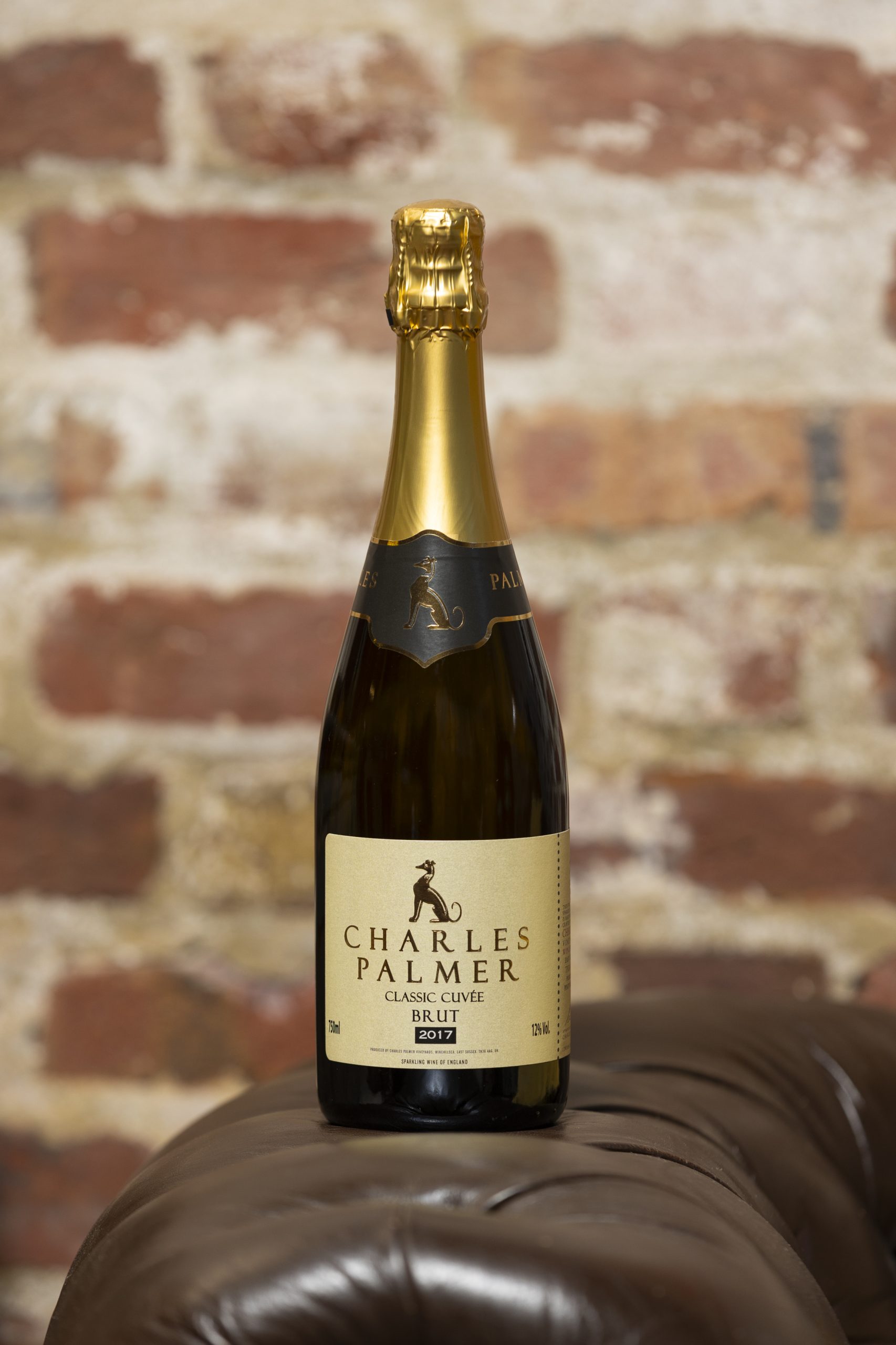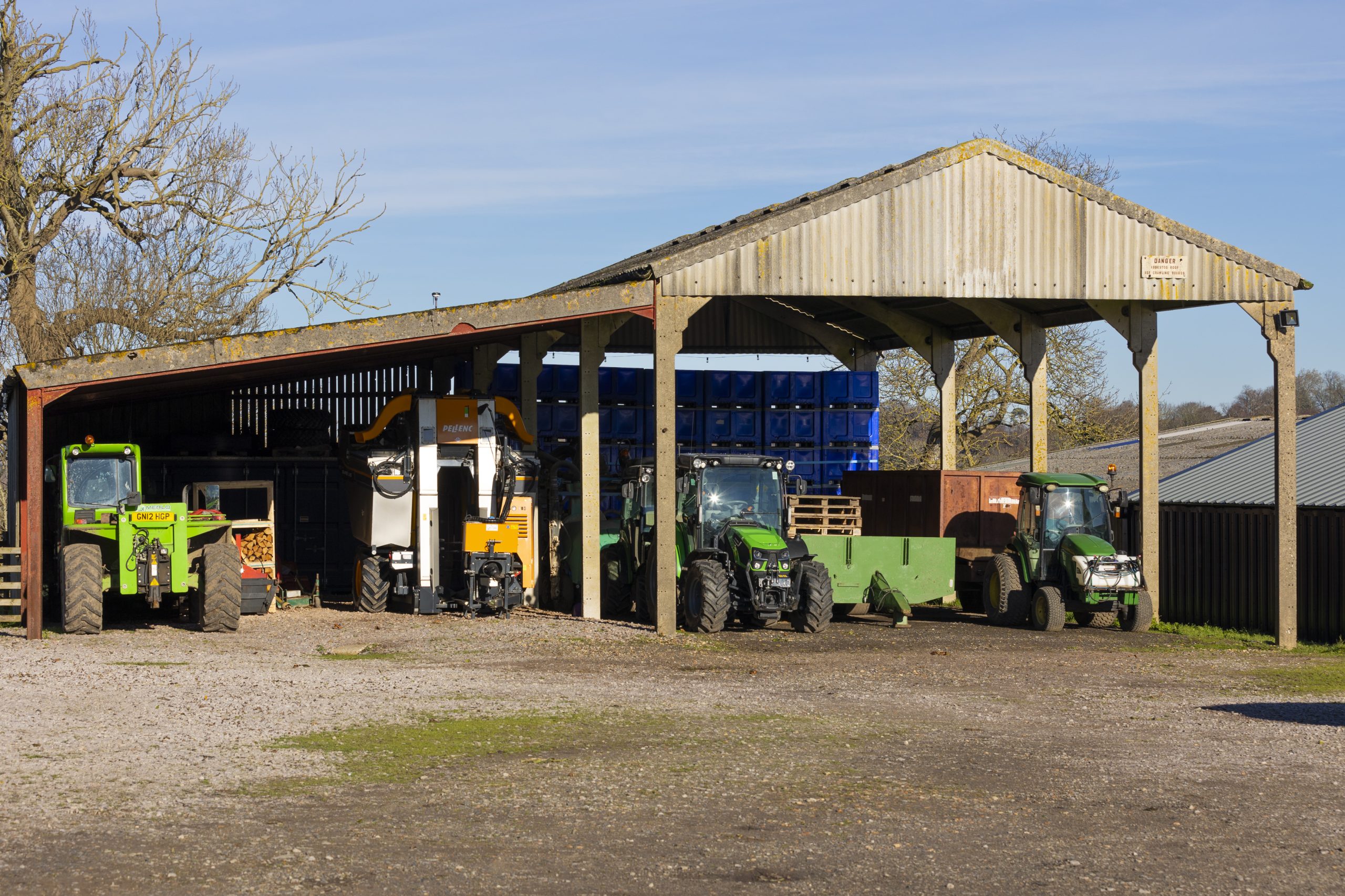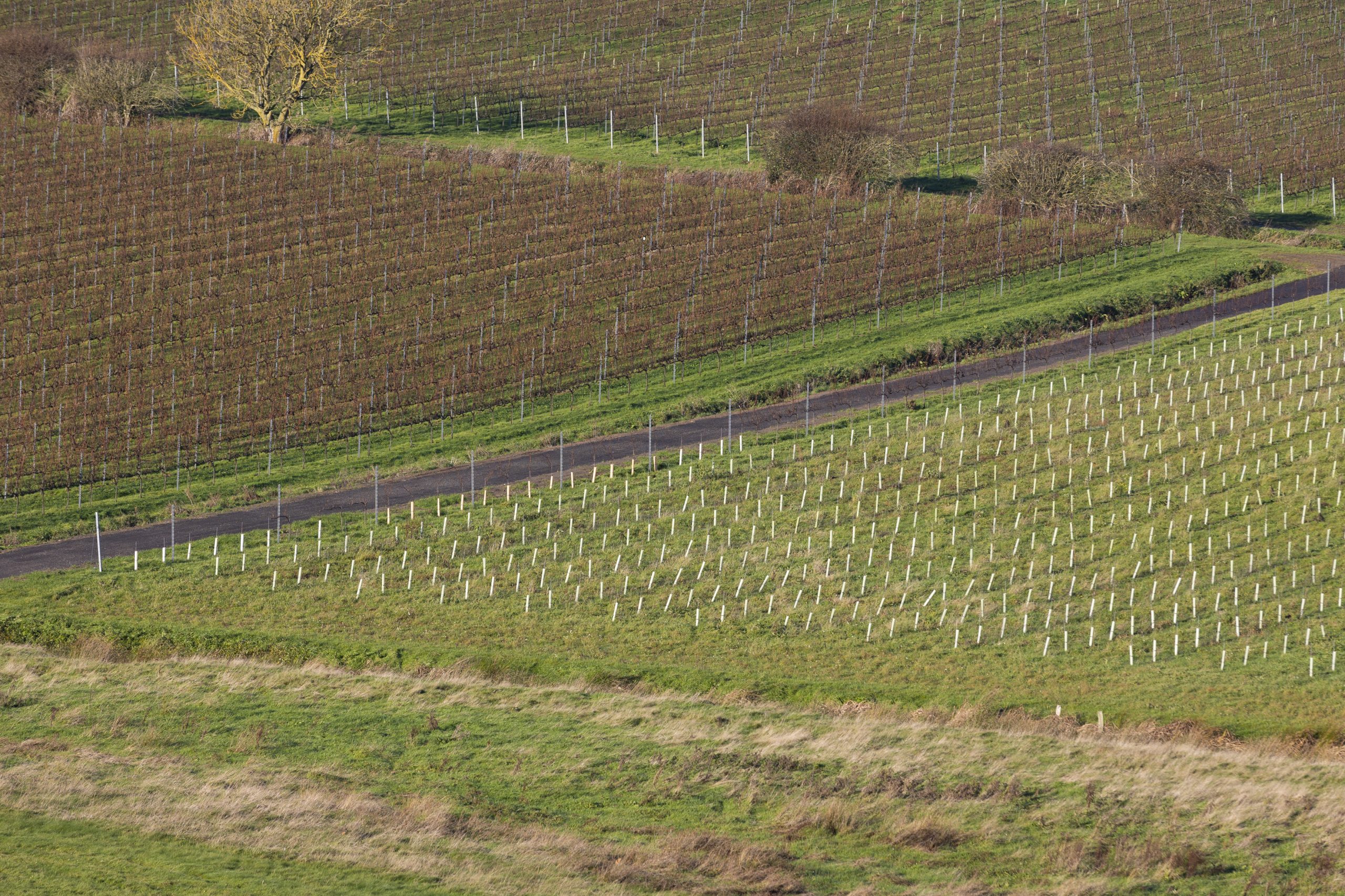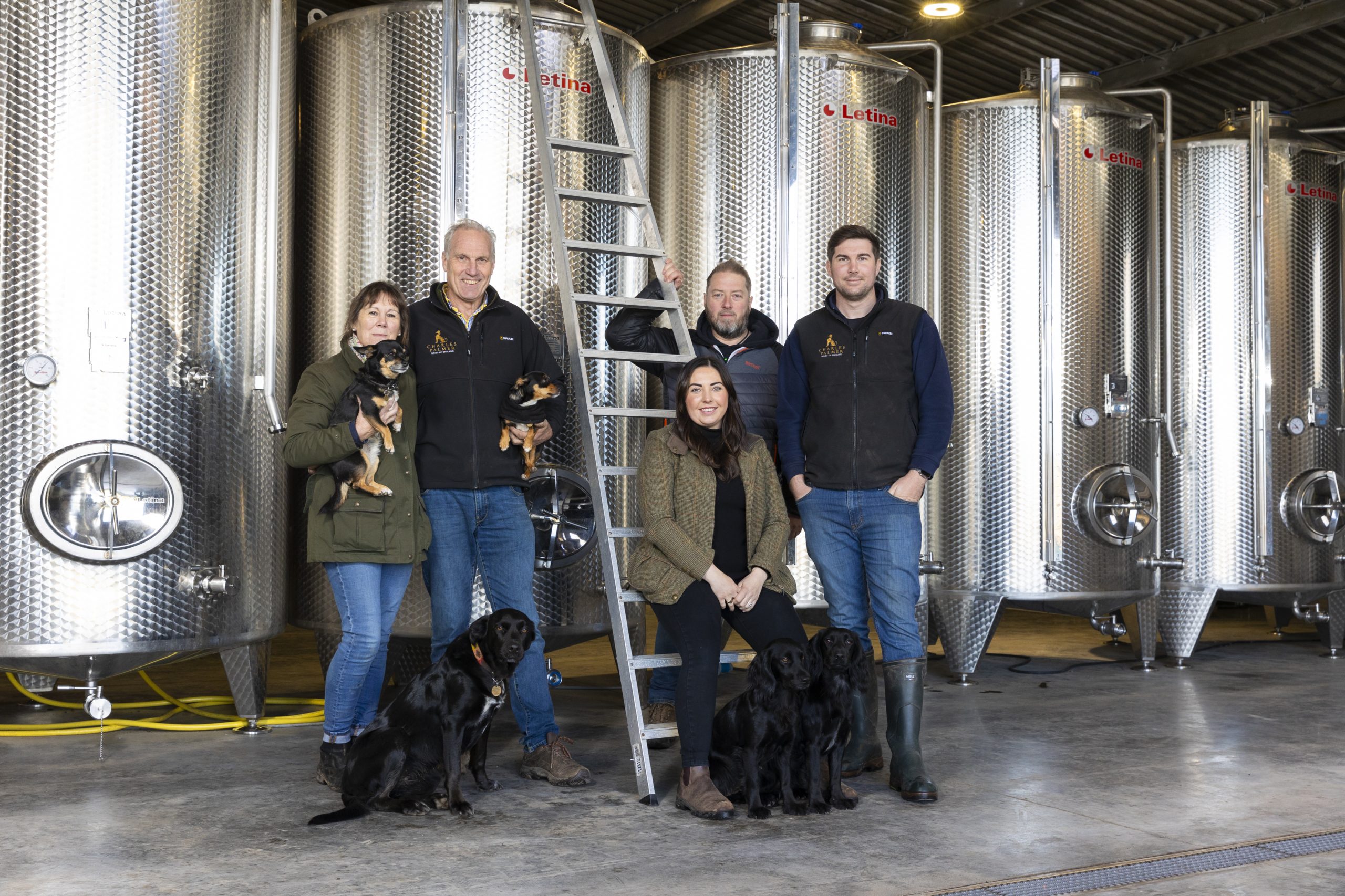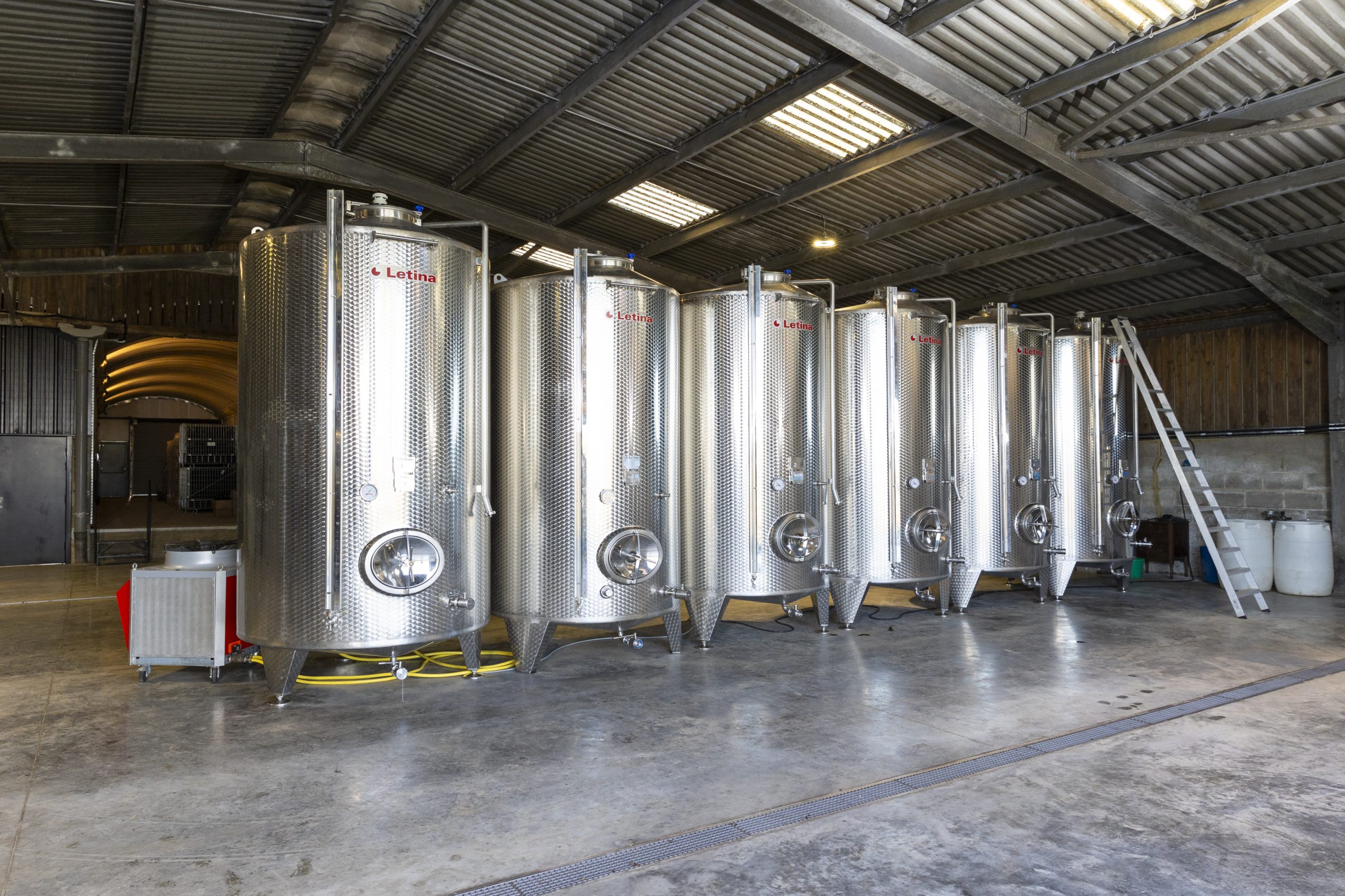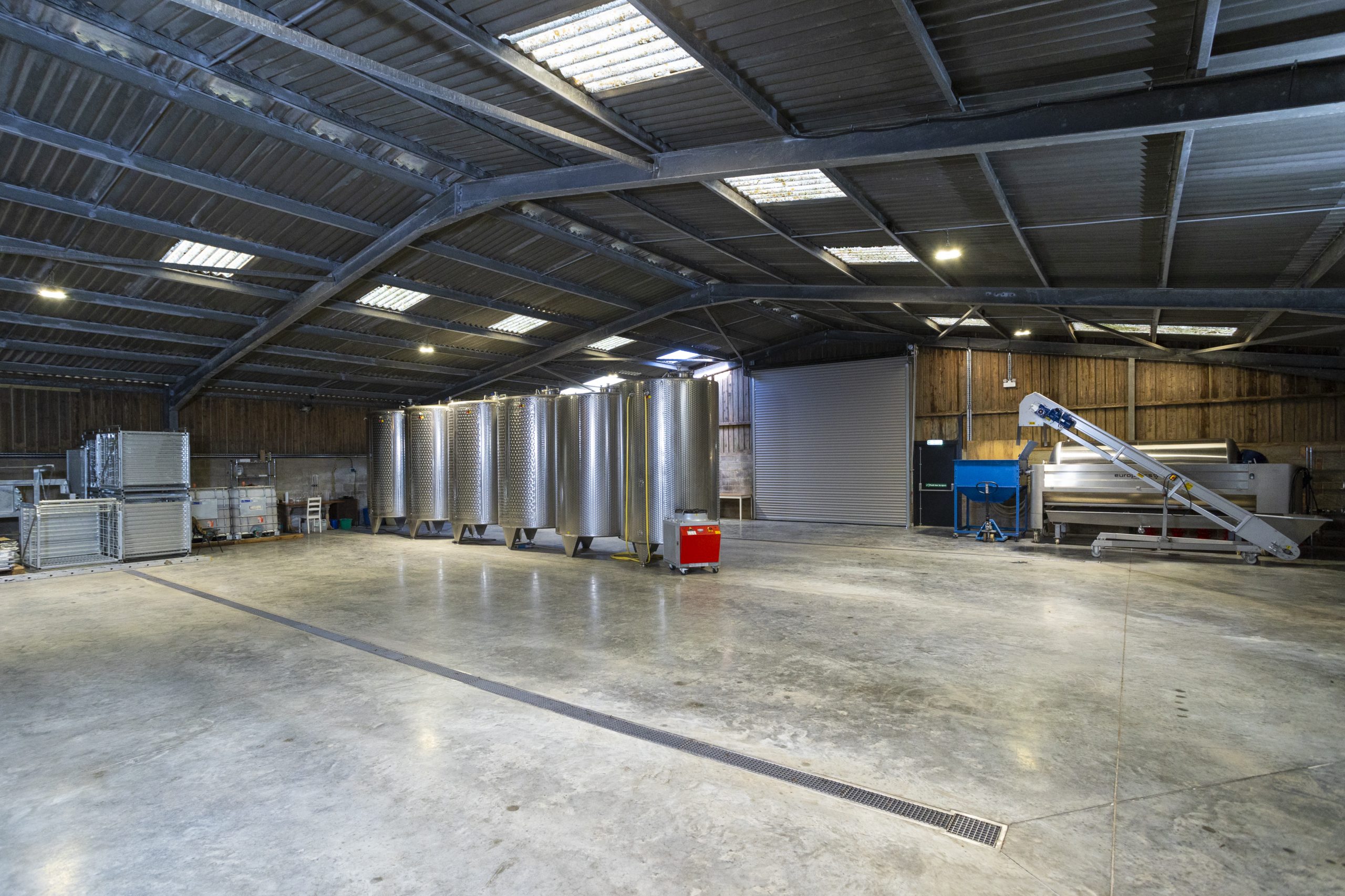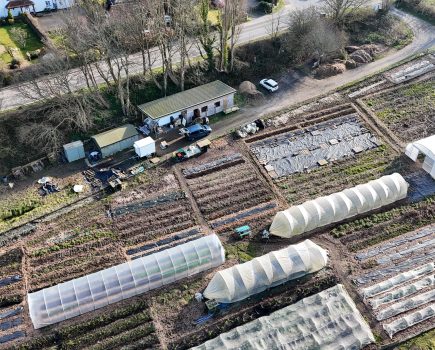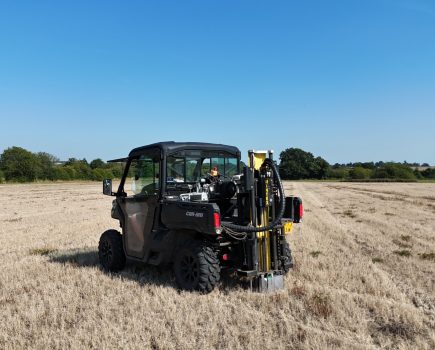Charles Palmer and his family moved to Winchelsea in 1998, taking on the lease of the 750-acre estate from the National Trust. This was a mixed farming enterprise incorporating arable, beef and sheep.
The drive to Wickham Manor passes through a 13th Century archway ironically called New Gate that once formed part of the walls of Winchelsea. The site is steeped in history, with the current grade II* listed building dating from 1580, although the farming history of the land can be traced back centuries before this.
References to this land have been found from 1200, and William Penn (founder of Pennsylvania) is among the previous owners. Standing in the courtyard surrounded by buildings of various ages that have had various purposes, it is clear that a site this unique may have been owned by various people, but its longevity underlines that ownership by any one person or family is transitory and actually those who have lived and worked here over the centuries have been the guardians of something truly special.
In 2006 Charles and Sally made the decision to add vines to the other enterprises on the farm. “Making a living as a farmer can be difficult, so it’s important to diversify,” said Charles. It was a decision that Charles and his wife Sally spent time researching. “We had a friend who had studied at Plumpton gaining a degree in Oenology and viticulture, and we also went to visit organic producers in the Champagne region,” said Charles.
The history of the site indicated that the area had once been a hop garden. “The sandy loam, free draining soil rests on a deeper moisture retaining clay and we have close proximity to the sea, so to plant vines was not re-inventing the wheel,” said Charles pragmatically.
The initial planting was two hectares of Pinot Noir and Chardonnay vines. “We decided that we didn’t want to include Pinot Meunier because we wanted to keep the planting simple, also Pinot Meunier would have been a really small percentage of the initial planting,” explained Charles. Instead the focus has been on selecting a variety of different clones in order to produce both still and sparkling wines. “I really like red wine, so that was always in my mind,” said Charles.
There are Germanic clones of Pinot Noir – “these add a slightly spicy and fruit-forward flavour profile to the wine and the Burgundy clones such as 777 are perfect for our still red wines,” Charles said with enthusiasm.
Interestingly, these numerous clones are not necessarily kept separate at harvest. “The first harvest was 2009 and we won a medal for that initial wine. At that time the Pinot Noir and Chardonnay were fermented together, and although it is different now we have maintained the same principle. The grapes are picked according to the ripeness levels and then placed in tank and so in this respect some important decisions are made in the vineyard pre-ferment,” he added.
There are striking parallels between the actual buildings on the site and the way the land is managed.
Over the centuries, Wickham Manor has been adapted to ensure it continues to be practical, and Charles Palmer Vineyards’ attitude to viticulture has mirrored this. There has been a gradual expansion of the vineyard plantings and there are currently 16 hectares under vine. The latest planting on the site was in 2024 and this included a substantial number of vines of the Piwi variety Sauvignac.
“The crossing of Sauvignon with Riesling offers a very balanced acidity for more palate variation,” said Charles, as he explained why Sauvignac had been selected.
Over the centuries Wickham Manor has witnessed outbreaks of the plague, the English Civil War, the Bloodless Revolution, the Great Fire of London and two World Wars, to name just a few major milestones in history.
Future generations will include the Covid-19 pandemic amongst these momentous events. The pandemic saw the family turn an unused lambing shed into an atmospheric tasting room with practical outside space that enabled the business to adapt to the challenge of social distancing rules. The manor itself was also altered to allow for one wing to become self-contained private suites available for rent as holiday accommodation.
The Covid-19 pandemic also led to significant shifts in the vineyard as well. “The 2020 harvest was traumatic due to a shortage of labour,” said Charles. The difficult weather in 2021 saw the vineyard turn to a Pellenc mechanical harvester hired and operated by Sam Barnes. “The machine harvester picked only the very ripe grapes, which would not have been achievable with hand picking,” said Charles. The results were so impressive that the vineyard took delivery of its own Pellenc harvester in 2022.
All the fruit at Charles Palmer Vineyards is picked by machine, with the machine being set up by Robert Palmer, who works alongside his father Charles in both the winery and the vineyard.
Charles then travels on the machine and looks at sample quality until they decide that the machine is set perfectly. Charles estimates that the machine is capable of harvesting 20 tonnes a day, but the wet season of 2024 left downy mildew in the top of the canopy, which caused the machine to block.
Despite this, Charles believes the grape harvester works in line with nature. “The mechanical harvester only picks clean ripe fruit. Naturally, ripe fruit falls from the vine and cutting the bunches from the vine is actually human intervention in the natural process,” said Charles with a smile that indicated he knows this is a controversial opinion.
Father and Son work well together and throughout the conversation their different approaches dovetail to provide a comprehensive insight into the daily workings of the business. “We are family working for a common goal, so we are allowed to be a bit more outspoken, the generational difference is beneficial, and Robert has good ideas,” said Charles with a hint of paternal pride.
“There is nothing like working with family,” said Robert with a mischievous smile that makes the whole family chuckle.
The mechanical harvester has fitted seamlessly into the operation of the vineyard. “The headlands are eight to 10m as we always had machinery such as sprayers in mind and we already had quality posts in place. The vines were planted in 2.7m rows with a spacing of 2m but the most recent planting since the harvester has been purchased was planted at 2.5m rows at 1.5m spacing,” Charles said.
Charles’ previous experience of the land led him to believe that the vines might suffer due to over vigour, and accordingly the vines were initially trained to the Scott Henry system, but the system did not work so the vines now are single guyot, cordon trained.
Talking about pests and diseases in the vineyard, Charles said: “The biggest problem we have is still the weather, as realistically we are growing vines on the edge of what is possible.” The vineyard was originally organic, but the young vines were not progressing as well as they should have been. “I took the pragmatic approach; we still use a sympathetic land management policy but I won’t lose a crop because of disease,” said Charles.
A Grade II* listing means that any work undertaken in the property and its curtilage has to be considered and undertaken with extra care. There are of course certain restrictions. “There are some fireplaces we are not allowed to use,” said Sally with a whimsical smile. These restrictions do not, however, mean that these buildings are museums; their continued use secures the future as much as it preserves the past.
In 2016 Charles took the decision to move winemaking on site and the 2017 vintage was the first vintage to be produced in the on-site winery.
“The original winery was very basic and covered about 2,000 sq ft,” said Charles. “It was not an inviting space to work in and felt quite isolating as it was a long way from the centre of the site,” added Robert. As of 2024 this is no longer the case as two cattle yards have been converted into a 10,000 sq. ft custom-designed winery.
Situated just a stone’s throw from both the tasting room and the vines, the new winery is so sympathetically blended to its surroundings that it requires a second look to realise that it is newly converted.
“This was a conversion rather than a new build so it was not straightforward. It was important that the construction company was able to do what we wanted but in a manner that was in keeping with the rest of the site, for example the black exterior was important as it reflects what is seen in the other buildings.
“We were aware that GJ Elgar had built a good reputation within the industry, and Graham’s previous experience of building wineries meant he was able to provide valuable advice about installing drains and falls in the floor of the winery,” said Charles.
“The drains that have been installed are stainless steel, food safe drains,” Graham Elgar pointed out. “Although the conversion of existing buildings to a winery is not that common, we do have a lot of experience of converting agricultural buildings to alternative uses.”
The project was complicated by the presence of asbestos, which was swiftly and expertly dealt with, and the need for special drainage works to ensure the building was fully weatherproof. “One elevation was below ground level and had been leaking since the original building was constructed somewhere around the 1950s. Using multiple techniques, we were able to remedy the problem and the building is now watertight for the first time,” said Graham.
The project also involved work to improve the access road, which is vital to help the new winery with the logistics of harvest and deliveries. “It was such a pleasure to work with the whole family at Charles Palmer Vineyards, they were all so helpful and understanding,” Graham said.
Graham and his team were able promptly to complete this new project, which will enable Charles Palmer Vineyards to produce 100,000 bottles a year. “This is the productive extent of the vineyard,” Charles said. The new winery houses a variety of tanks ranging from 1,000 litres to 5,000 litres. “This is the maximum size tank we work with as big tanks make the wines taste the same and that is not what we want,” Charles added.
There is a new disgorging line on order from WR Services which will also give more freedom in the winery. “The new winery is a space which I enjoy working in and means I want to be proactive; it is much easier to keep clean and therefore time in the winery is far better spent,” explained Robert. This makes the point that for a small vineyard and winery team such as the family business of Charles Palmer Vineyards, efficiency is extremely valuable.
“It makes me happy when customers are pleased with their new winery,” said Graham. “But what really brings me satisfaction is hearing that the winery building at Charles Palmer Vineyards is really working for them, saving them time and creating a space they enjoy working in.”
The wines produced at Charles Palmer Vineyards are vintage specific and Robert pointed to the 2017 Rosé as being particularly interesting. “It was inoculated with a tiny amount of yeast,” he explained.
“We produce smaller batches of wines and when these wines run out customers have to wait for the next vintage, encouraging customers to look forward to what we release next,” said Charles.
One of the wines that customers will be waiting for is the popular demi sec. “This is a wine with a wide appeal and is very popular; it is a perfect toasting wine,” said Chantal, who is married to Robert and runs the cellar door and tastings at the vineyard. Wickham Manor featured in the popular TV series The Crown and was also used as the setting for
Mr Holmes featuring Ian McKellen and Laura Linney.
It has often been suggested that restaurants do not want wines that vary from vintage to vintage, but the vintage-specific wines are popular with the vineyards’ on-trade clients. “Our wines are popular on pairing menus as the vintage variation allows chefs to be expressive and creative,” said Charles.
The vineyard is on the 31-mile 1066 Country Walk and many visitors find the vineyard as part of this popular walking trail. “We are able to provide a picnic hamper for people to enjoy on a self-guided tour of the vineyard and this has been really well received,” said Chantal.
The vineyard also offers bespoke packages including lunch for a maximum of 30 people. Vine and Country wine tours also cook long, lazy lunches at the vineyard as part of their bespoke wine tours service.
The vineyard holds trade tastings for those who stock their wines. “Tastings give confidence to those stocking the wines,” said Chantal. There are about 14 tastings a week and tastings have provided good experiences for Chantal. “I once held a tasting with six winemakers and sommeliers from Estonia. There are not many vineyards in Estonia but it was such a rewarding experience. I learnt so much from them and they were excellent company too.”
Andy and Heidi Rixon live in a neighbouring property and help out at the vineyard and winery. Andy also hosts tastings. “On one tasting I met an intensive care nurse who had cared for me after a motorbike accident and that was an amazing experience,” he said.
Originally calling it Palmer Vineyards, Charles faced objections from not one but two French vineyards, and selected Charles Palmer Vineyards as the name. The label design and branding is inspired by th ePalmer family coat of arms. “Family is paramount,” said Charles with gravity. The traditional medieval hound is pictured seated instead of the usual running pose in order to bring a sense of relaxed enjoyment.
The atmosphere at Charles Palmer Vineyards is one of inclusivity towards everyone, from clients who arrive by helicopter to walkers who didn’t know the vineyard was there. Everyone is welcomed with a sense of family and enjoyment.
“I love meeting the guests,” said Sally, and the sentiment is shared by everyone. The current guardians of this historic landscape are, through their vineyard and winery, sharing a piece of the historic foundations of Wickham Manor well beyond the borders of the county of Sussex, every sip being a special taste of history.
- Sally, Charles, Chantal, Andy and Robert

